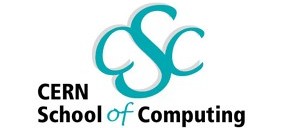|
|
 |
|
|
|
|
|
Students at CSC2009
The following people have attended the 2009 CERN School of
Computing.
|
Daniele Francesco KRUSE |
CERN, Geneva - Switzerland |
|
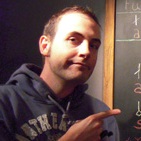 |
I am 28 years old. I was born and raised in Rome, Italy. I studied computer
science at the university of Rome "Tor Vergata" and finished my master's
degree in 2008. I was an Erasmus student in 2004 in the "Universidad
Autonoma" in Madrid and I was a CERN summer student in 2006.
Now I am back at CERN for 1 or 2 years, working on performance
monitoring of applications and vector programming in the PH/SFT group. I
love to travel around the world and to listen to rock 'n roll music, and my
favourite outdoor activity is paragliding. I am really looking forward to
CSC2009 :)
|
|
Tuomo KALLIOKOSKI |
University of Jyväskylä - Finland |
|
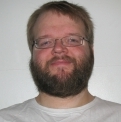 |
I am doing PhD work in EMMA (Experiment with MultiMuon Array), which is in
CUPP (Centre for Underground Physics in Pyhäsalmi).
I am also a bit involved with
ALICE. Just before hearing
about this school we were discussing about building a database of events
recorded by EMMA. So this possibility to join the school is a great
opportunity for me personally and our whole experiment.
On computer side, I'm personally using Linux as my main OS, but for
gaming also Windows. I have used Mac OS X also. I currently use Perl and C++
for programming.
|
|
|
|
|
Svetozár KAPUSTA |
CERN, Geneva - Switzerland |
|
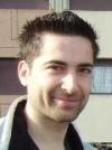
|
Svetozar is graduated at the Faculty of Mathematics, Physics and Informatics
at the Comenius University in Bratislava in 2003 obtaining a Mgr degree in
Physics. His collaboration with CERN started in 2001 when he joined the
ALICE Silicon Pixel Detector group as a summer student. Since 2004 he has
been supporting the ALICE online physics community as a member of the ALICE
Detector Control System team mainly in the field of schema and application
design, optimization and data management. He joined the CERN openlab
recently and is testing the Real-Time Query Capability of Physical Standby
Databases.
|
|
|
|
|
Mathias KASPAR |
Georg-August University Göttingen - Germany |
|

|
Since January 2009, I am working at the Department of Medical Informatics in
Göttingen. There I am a member of the medical grid projects team. Within the
German grid infrastructure the project provides grid services for the
biomedical community. Since I am working on the installation and
configuration (Globus Toolkit, cfengine, ...) on a local visualization
cluster. Another task of mine is the conception and integration of the
visualization cluster into the German grid environment. My PhD is focusing
on the topic of shared medical visualization from different sites for
telemedical use cases.
|
|
|
|
|
Anna KOTYNIA |
GSI, Darmstadt - Germany |
|
 |
I am working on simulations of heavy ion collisions done for the CBM
experiment which is a part of FAIR facility in Darmstadt in Germany. My work
is based on preparing software for designing detectors geometries and for
simulations of detectors properties. My main field of work at this moment is
simulations of the Silicon Tracking System (STS), the central detector of
the CBM experiment. I work with ROOT (CBMROOT), and I am familiar with
Windows and Linux operating systems and C++ programming language.
|
|
|
|
|
Daniele Francesco KRUSE |
CERN, Geneva - Switzerland |
|
 |
I am 28 years old. I was born and raised in Rome, Italy. I studied computer
science at the university of Rome "Tor Vergata" and finished my master's
degree in 2008. I was an Erasmus student in 2004 in the "Universidad
Autonoma" in Madrid and I was a CERN summer student in 2006.
Now I am back at CERN for 1 or 2 years, working on performance
monitoring of applications and vector programming in the PH/SFT group. I
love to travel around the world and to listen to rock 'n roll music, and my
favourite outdoor activity is paragliding. I am really looking forward to
CSC2009 :)
|
|
|
|
|
Stefan Lohn |
CERN, Geneva - Switzerland |
|
 |
The work as well as the thesis I am currently working on is about comparing
parallelization strategies for the AliRoot SW from the ALICE to profit from
multi- and many-cores architecture. Especially the IO operations must be
minimized and better coordinated to reduce bottlenecks during CPU
calculations. In addition it is urgently required to reduce memory usage
during the concurrency event analysis. For developing and also as test
platform SLC 5 is installed and in use, what is optimal cause I am familiar
in using different Linux derivatives. Support for MS Windows is anticipated.
As programming Language C++ is provided in combination with pthreads. OpenMP
is in discussion. |
|
|
|
|
Jose Pedro MACEDO ALVES FERREIRA |
CERN, Geneva - Switzerland |
|

|
I got my MSc in Informatics Engineering and Computing from University of
Porto, in 2008, after spending one year as a Technical Student at CERN's
IT-UDS group, working as a developer for the Indico project. In July 2008, I
came back to CERN, as a fellow, once again working for Indico.
My work covers a wide range of fields and technologies, from system
deployment and administration to web interface design, as well as the
development of scalable and performance-optimized solutions for storage,
indexing and retrieval of event metadata. Due to my involvement with Indico,
I have spent the last couple of years developing Python/JavaScript code,
using the ZODB object oriented database, and exploring the latest
innovations in web interface technology.
|
|
|
|
|
Joris MAES |
Vrje Universiteit Brussels - Belgium |
|
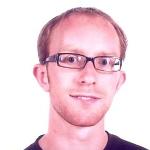 |
After finishing my master in physics I started working as a PhD researcher
at the Vrije Universiteit Brussels (VUB) on the CMS experiment. My main
topic is setting up an analysis for measuring the efficiency of b
identification algorithms. These algorithms, so-called b-tagging algorithms,
aim for identifying jets coming from b quarks which play an important role
in various physics analysis.
I am also involved in computing related projects. Within CMS I've been
involved in the production of the MC samples used by the physics community.
I've also been working on the testing and commissioning of up and down links
between T1 and T2 centers. At this moment I'm one of the members of the
central CMSSW deployment team. Together with some colleagues we install the
main physics software on the various T2s in CMS. Besides this I'm helping in
defining and setting up an analysis operations task force for monitoring and
improving the grid use for physics analysis in CMS.
|
|
|
|
|
Rachid MD MAMUNUR |
CERN, Geneva - Switzerland |
|
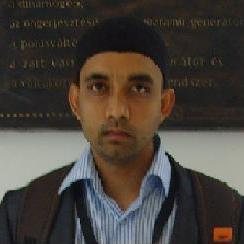
|
PhD student working for LHCb at CERN to elaborate a new dataflow for
using non-conventional Computing resources in a Grid computing environment
and monitor its behaviour. As present mechanisms are thriving to manage and
process huge amounts of data from scientific experiments within a limited
time on remote/distributed resources. The proposed work is aimed to increase
the computational power of conventional computer systems by using additional
so-called opportunistic resources, i.e. computing resources that are not
part of a computing centre with batch and data storage systems. The goal is
to elaborate a suitable Dataflow Architecture based on existing (to define)
tools, apply it to a Grid Environment including Data management and job
Scheduling strategy, proves feasibility and efficiency. Along with this I am
also considering the site virtualization for remote machine job execution as
a research on opportunistic resource search.
|
|
|
|
|
Melvin MEIJER |
Radboud University Nijmegen – The Netherlands |
|
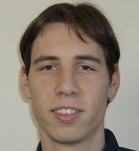 |
I am a 2nd year PhD student at the Radboud University, Nijmegen, and a
member of the D0 collaboration at Fermilab. My physics analysis is part of
the search for a low mass Standard Model Higgs Boson, where I'm studying the
decay of W to W H to tau nu bb. I also worked for the tracking group of D0,
by helping to make use of timing information provided by a new readout
system of the CFT (Central Fiber Tracker) in order to reduce the number of
fake tracks from the tracking algorithm.
|
|
|
|
|
Tim MUENCHEN |
Bergische Universität Wuppertal - Germany |
|
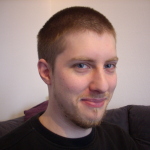 |
I studied computer science at the University of Applied Sciences, Münster,
and got my master's degree in 2007. In 2008, I started to work on my PhD
thesis at the ATLAS working group of the University of Wuppertal. I am
continuing development on the user space job monitoring software, JEM,
created at Wuppertal, and focus on the user interface (integration in the
job submission and management tool 'ganga') and a binary tracing module
allowing to monitor.(athena-) user algorithms written in C++.
|
|
|
|
|
Luis Fernando MUNOZ MEJĺAS |
CERN, Geneva - Switzerland |
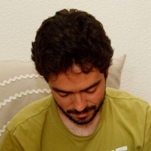
|
I am working on a central log service for the Computer Security Team, which
should allow for easier identification of ongoing attacks and faster
forensics analysis of . For this project I have already developed some
modules for rsyslog (in C language), as well as some database designs and
queries and scripts to use them (SQL, PL/SQL, Python, C, Perl). This task
involves also some understanding on SELinux policies, how to write them and
how to enforce minimum privileges. I'm also a skilled C++ programmer,
although probably not as efficient as I am in Perl, Python, C and bash
scripting which are my "working languages". Occasionally I maintain parts of
Quattor for which I'm an author. I'm mostly familiar with Linux at systems
administrator, user and low-level application levels, although have some
knowledge of Windows.
|
|
|
|
|
Friederike NOWAK |
University of Hamburg - Germany |

|
I am PhD student at the University of Hamburg (Germany) and I work for the
CMS experiment. Among other things I am responsible for developing
monitoring tools for Tier 1, Tier 2, and Tier 3 centers. This is done on
Linux. I am familiar with Perl, Python, and C++
|
|
|
|
|
Malte NUHN |
RWTH, Aachen - Germany |
|
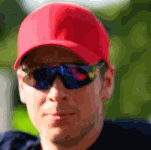
|
I am studying physics at RWTH Aachen University and I am currently writing
my Diploma Thesis in the field of Grid-Computing. I'm interested in advanced
monitoring, statistical analysis and diagnosis of individual grid-jobs.
Besides that I am studying computer science and plan to work in the field of
machine-learning and pattern-recognition.
|
|
|
|
|
Markus OSTERHOFF |
Georg-August University Göttingen - Germany |
|
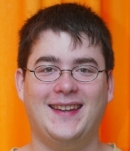 |
In collaboration between the University of Göttingen and the European
Synchrotron Radiation Facility in Grenoble, France, I am working in a PhD
project on numerical methods to optimize Multilayer Mirrors for X-ray
focusing. In order to simulate wave propagation and diffraction (small
wavelengths, but large objects), parallel algorithms and distributed
calculations (MIMD) are necessary. So far, I am using C, Perl and a little
bit IDL together with Shared Memory, Message Passing, and Cuda technologies;
also Monte Carlo methods and LA packages are needed. In my diploma thesis I
studied the effects of real structure effects on X-ray propagation in
waveguides. My favorite editor is Vim.
|
|
|
|
|
Andrea PARENTI |
DESY, Hamburg - Germany |
|
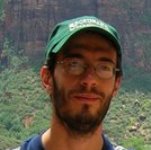 |
I am working at the Deutsches Elektronen-Synchrotron (DESY) in Hamburg,
Germany, for the ZEUS and CMS experiments. I am the Monte Carlo Coordinator
for the ZEUS experiment: my tasks are to guarantee a smooth processing of
Monte Carlo events, coordinate people working on the simulation software,
build-up new versions of the Monte Carlo software.
I also made analysis of the ZEUS data using Fortran and PAW. In CMS
I am involved in the alignment of the silicon tracker. I am responsible for
a package of perl scripts helping in managing a large amount of alignment
jobs. I am also doing alignment studies with Monte Carlo events; the
software we use for this is C++/root based.
|
|
|
|
|
Raquel PEZOA |
Universidad Technica Federico Santa Maria, Valparaiso - Chile |
|
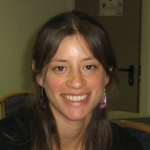 |
I am a computer scientist and I am currently working for the Universidad
Técnica Federico Santa María (UTFSM) in Valparaíso, Chile. I am part of the
Center for Technological Innovation on High Performance Computing (CTI-HPC)
and the Physics Department. I already got my Master in Computer Science and
now I mainly work on grid computing area and I am starting to work on
physics computing. I have been
at CERN two times, the first one
in 2007, where I worked with the ATLAS Distributed Computing (ADC)
group and I developed a system called ATLAS Accounting System. Then in 2008,
I returned to work on the ATLAS Grid Information System which was also my
master thesis topic.
|
|
|
|
|
Roko PLESTINA |
Fakultet elektrotehnike, strojarstva i brodogradnje,
Split - Croatia |
|

|
I am a first year PhD student at University of Split, Croatia. My group is
involved in search for the SM Higgs boson decaying into four leptons via two
intermediate Z bosons with CMS detector at CERN. CMS is general purpose
particle detector and one of its main goals is to search for Higgs boson.
I am particularly involved in lepton isolation studies. Most of the
work is being done using common CMS analysis software (ROOT, CMSSW ...) in
UNIX/Linux OS.
|
|
|
|
|
Gianni PUCCIANI |
CERN, Geneva - Switzerland |
|
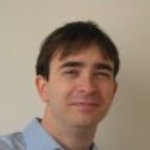 |
I am currently working at CERN in the IT Grid Deployment group where I am
coordinating the testing activity done for certifying the quality of the
gLite middleware. I am also responsible of the monitoring system (based on
Nagios) used in our testbed. I
have a Ph.D. in Information Engineering from the University of Pisa with a
thesis on the replica consistency problem for Data Grids.
In have previously worked at INFN, and at CERN as Ph.D. student,
where I was developing and testing software for Grids and data storage.
My main interests at the moment are Grid technologies and monitoring
and testing automation software.
|
|
Last edited:
25-Mar-13
|
|
